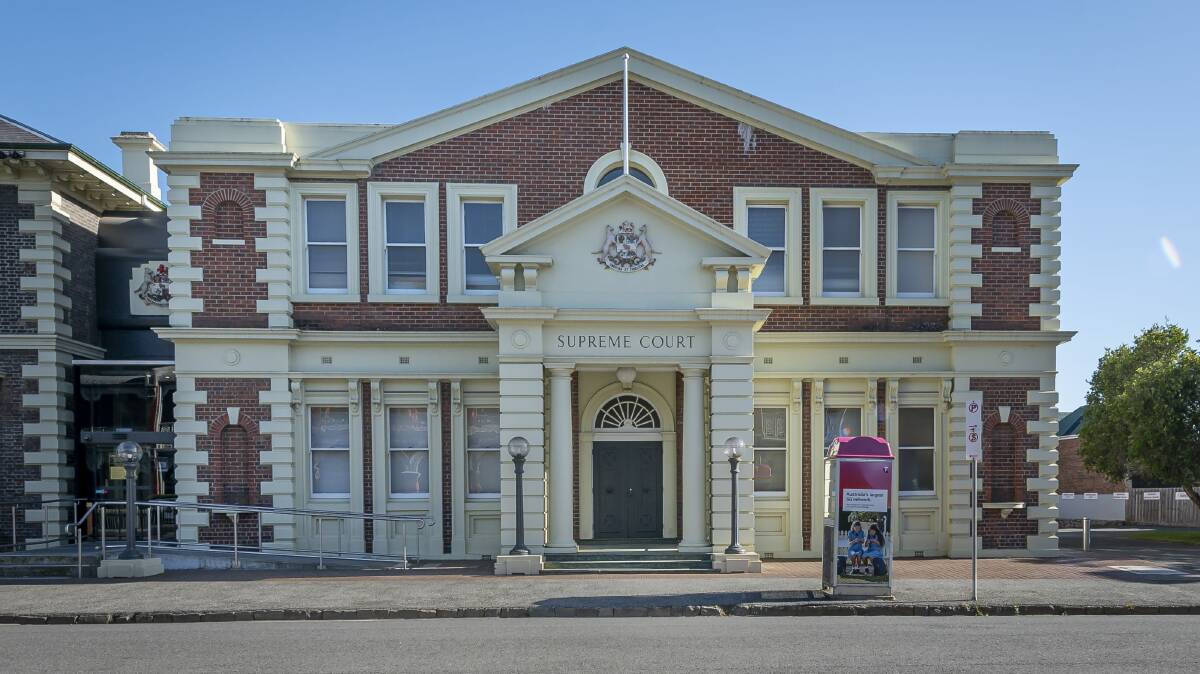
Tasmania's Family Violence Prevention Minister has spoken of the terror she faced as a victim of suffocation, and her pride that the government has pushed ahead with the introduction of non-fatal strangulation laws.
Subscribe now for unlimited access.
$0/
(min cost $0)
or signup to continue reading
The draft laws were released for public comment on Monday, introducing the standalone indictable offence in recognition of its seriousness as a precursor to escalating family violence.
Jacquie Petrusma said the impact of suffocation in a family violence situation was long-lasting.
"The terror that a victim-survivor feels at these times, it lasts with you, it stays with you forever, because you know that at any time you could die," she said.
"The outcomes of what I see as one of the most heinous acts against a woman, it's life-long, you can be unconscious within seconds, you can die within minutes."
The law carries a maximum sentence of 21 years, consistent with most other offences in the Criminal Code.
They were developed following a report from the Sentencing Advisory Council, and in consultation with stakeholder groups. Coroner Olivia McTaggart highlighted the risk of non-fatal strangulation in 2014, and the government has been accused of being too slow to act.

Attorney-General Elise Archer said the standalone offence would elevate non-fatal strangulation to the level of other serious offences.
"Our government recognises that non-fatal strangulation and choking or suffocation is a significant form of violence, which can be a precursor for the escalation into more severe forms of family violence," she said.
"We have that educative focus as well so that it's not only an education on those who would be offenders, but also on victim-survivors to ensure that they do come forward.
"If it leads to increase of people reporting crimes, then I see that as a positive outcome."
The draft bill adds the "strangulation" offence after the persistent family violence section in the Criminal Code, and adds an "attempted murder" section following the manslaughter section.
A person indicted for attempted murder can be convicted of strangulation.
Strangulation was also added as an option with assault and wounding under the grievous bodily harm section.
'Stealthing' to be defined in Criminal Code
The act of "stealthing" - when a person removes or damages a condom without the agreement of the other person - will be clearly defined in the Criminal Code, rather than added as a standalone offence.
Ms Archer said this was due to Tasmania already having strong consent laws that covered this type of offending.
She said that, by specifically defining it, it would clear any doubt.
"Specific recognition of stealthing in the law will help educate the public, discourage would-be offenders, and encourage complaints and prosecutions for sexual offences such as rape," Ms Archer said.
READ MORE: New wolf spider discovered in Tasmania
"Stealthing is already covered by our laws, but in further defining it in this manner, as other states, it removes any doubt that the situation of stealthing is unlawful.
"It is designed to educate the public and discourage would-be offenders so that they know that that type of act is not OK, that it is the same as a party saying 'no', and I might say our consent laws are so strong that a party remaining silent is also not providing consent."
Tasmania had the country's strongest consent laws up until November this year, when the NSW Parliament passed "affirmative consent" law reforms. Victoria is also considering bringing in similar laws.
The government is providing an extended consultation period due to the time of the year, with submissions to close on February 18 and legislation to be tabled early next year.
If this article raises concerns for you or anyone you know contact the 24-hour national sexual assault and family violence counselling service on 1800 737 732
What do you think? Send us a letter to the editor:
Our journalists work hard to provide local, up-to-date news to the community. This is how you can continue to access our trusted content:
- Bookmark www.examiner.com.au
- Make sure you are signed up for our breaking and regular headlines newsletters
- Follow us on Twitter: @examineronline
- Follow us on Instagram: @examineronline
- Follow us on Google News: The Examiner


